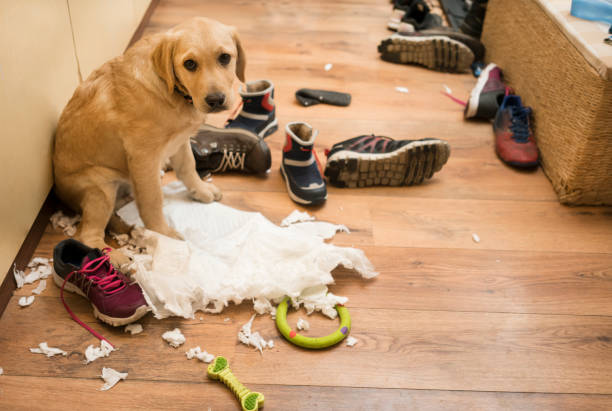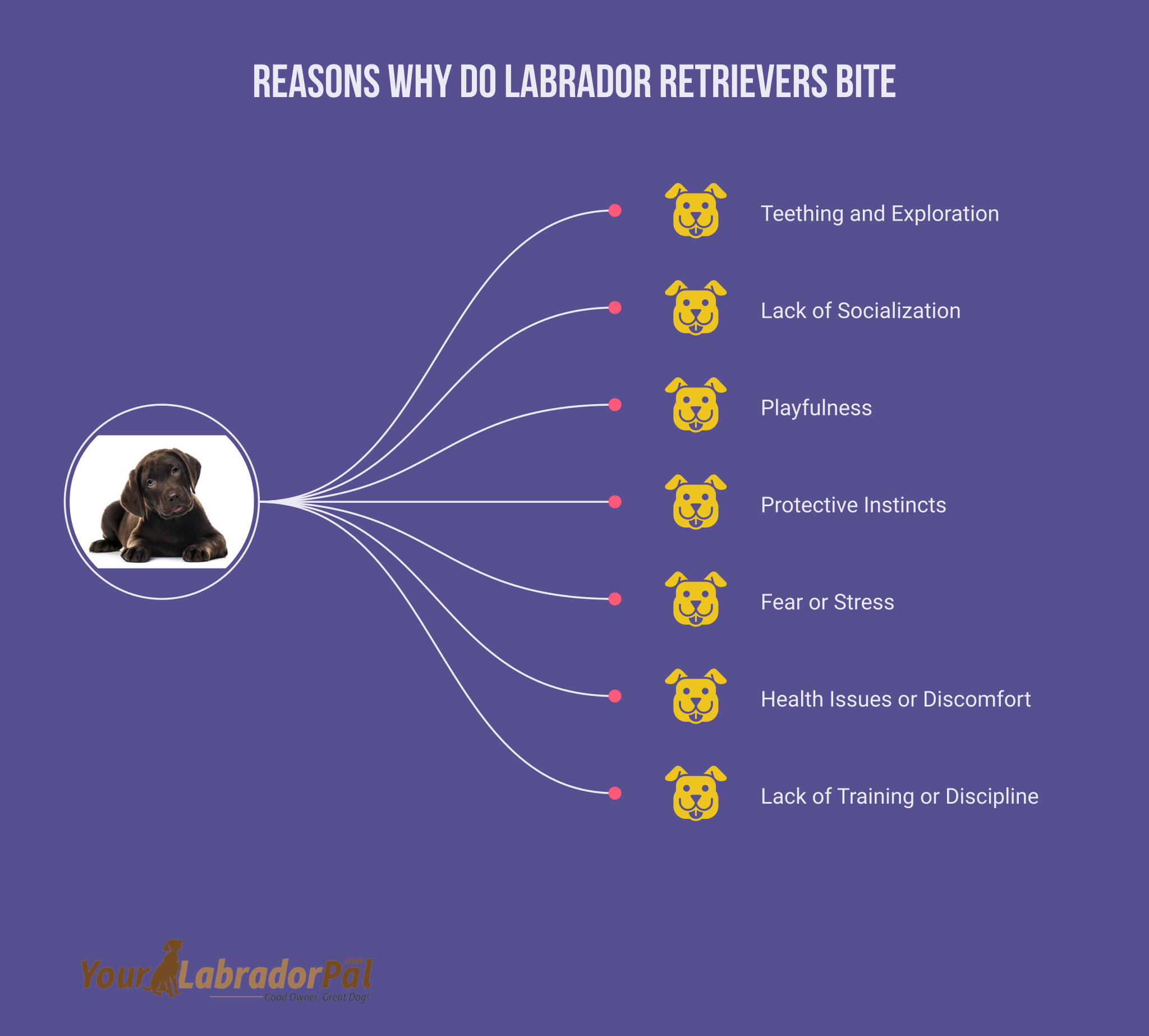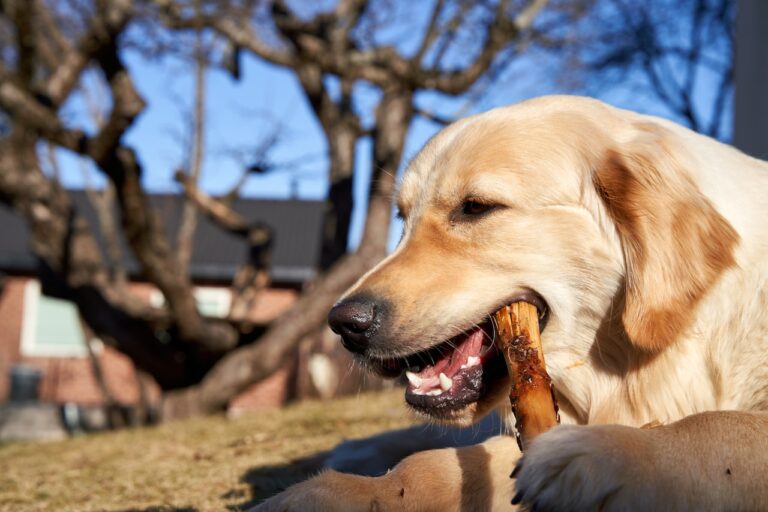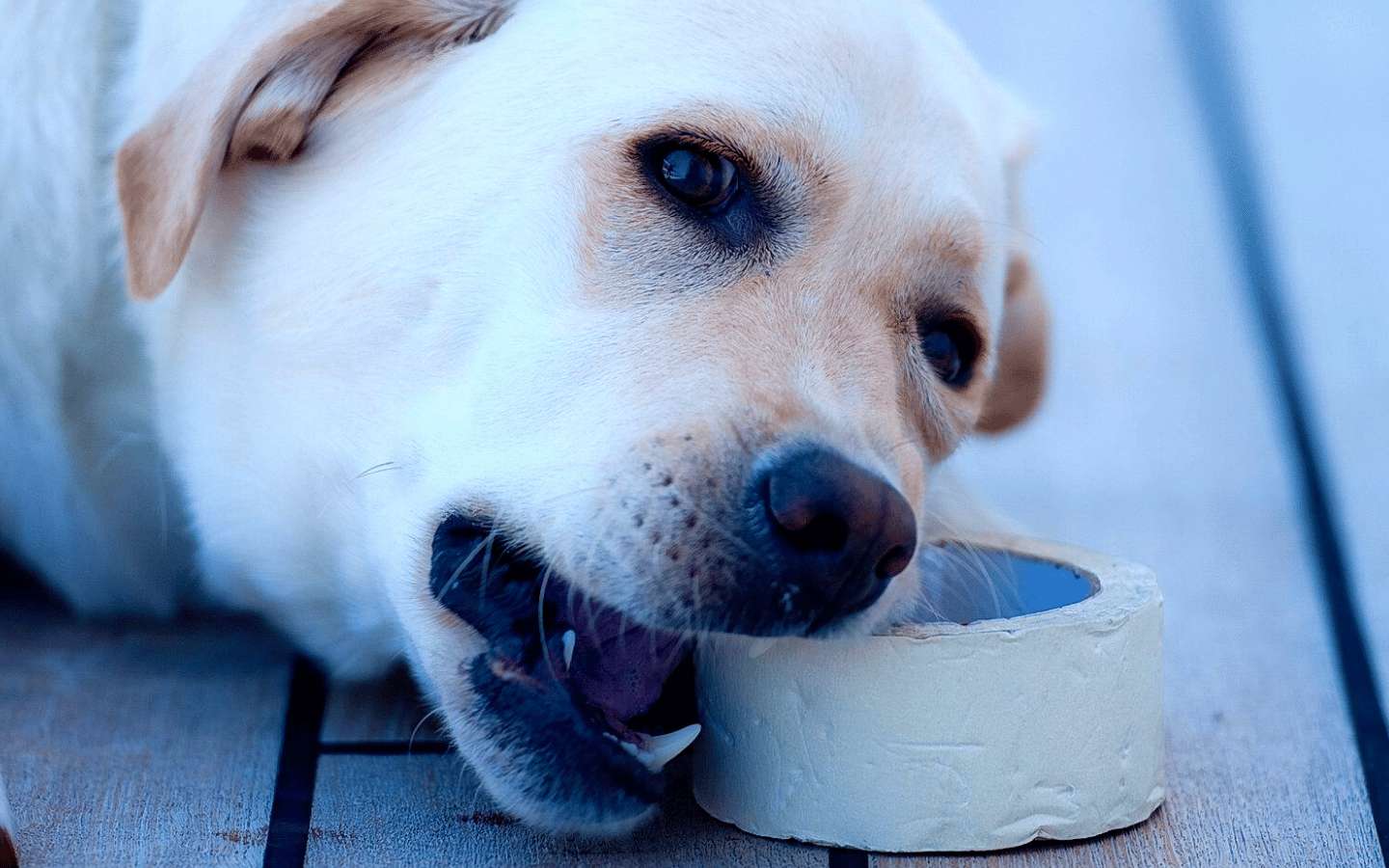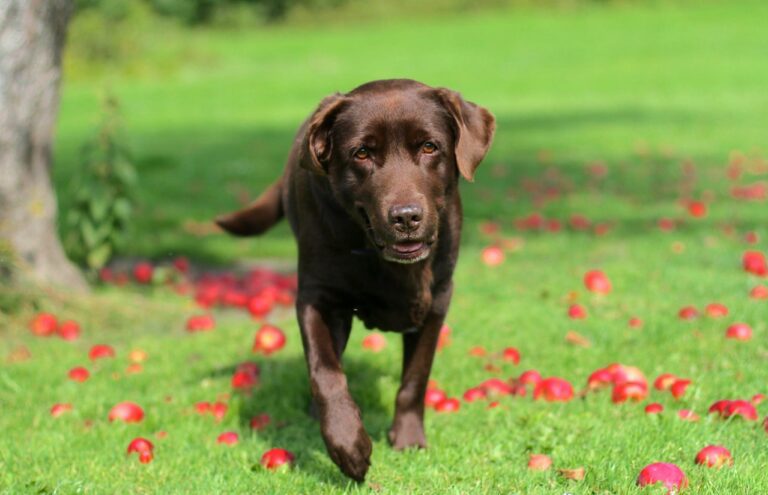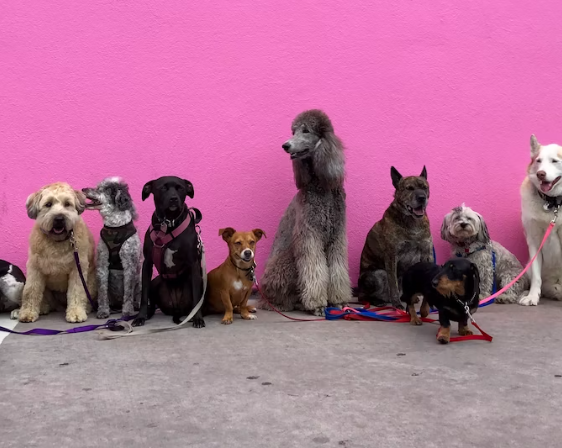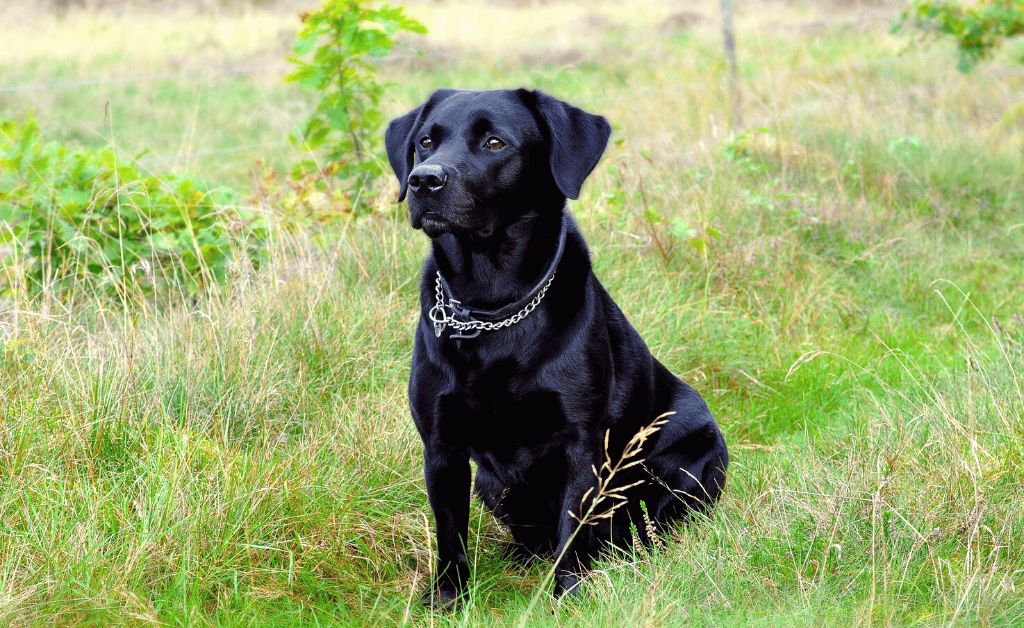Why do Labrador Retrievers Bite: Understanding its Behavior
The amiable and gentle character of Labrador Retrievers makes them one of the most popular and adored dog breeds. However, the reasons why do Labrador retrievers bite under specific conditions vary, just like any other dog breed. Owners can effectively handle and avoid such behavior by thoroughly understanding the causes of Labrador Retriever biting.
The causes of Labrador Retriever bites are explained in this article, including teething, socialization, protective instincts, stress or fear, and the value of training and punishment. Understanding these factors will help dog owners make proactive decisions to encourage a secure and peaceful relationship with their Labrador pets.
Why do Labrador Retrievers Bite: Causes of Lab Biting
Like any other dog breed, Labrador Retrievers have the potential to bite for a number of different reasons. Here is detailed information why do Labrador Retrievers bite.
🦴Teething and Exploration
Labrador puppies who are teething go through discomfort and a desire to explore their surroundings. As with all puppies, Labrador Retrievers may bite to get relief from their teething pain and to explore their environment. Chewing gives them relief and aids in the emergence of their adult teeth. To avoid any unfavorable biting behaviors from developing, it is essential to guide their behavior appropriately.
It’s critical for Labrador parents to give their puppies appropriate chew toys in order to manage this issue. These toys have to be created especially for teething pups and provide them with a secure and pleasant outlet for their chewing requirements. Owners can prevent their pets from chewing on inappropriate objects or even people by diverting their attention to appropriate chew toys.
When training Labrador puppies during their teething stage, consistency and patience are essential. Praise and treat them when they chew on their chosen toys to encourage good behavior. Concurrently, deter biting on hands or furnishings by forcefully telling them “no” and directing their focus to the proper chew toys. The chance of incorrect biting behavior as Labrador puppies grow into adult dogs can be decreased over time with constant reinforcement of healthy chewing activity.
Fostering a healthy and well-behaved canine partner can be helped by being aware of and responding to the teething and exploratory biting phases that Labrador Retrievers go through.
🦴Lack of Socialization
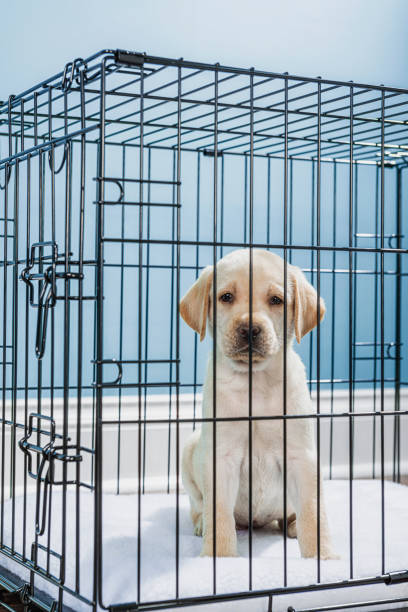
An important factor in determining a Labrador’s temperament and behavior is socialization. Puppies learn to adapt, feel more self-assured, and acquire proper social skills when they are exposed to a variety of stimuli during their formative weeks and months. They gain used to new circumstances and are less likely to view them as threats, which lowers the risk that they would bite.
Introduce Labradors to a variety of people, including family, friends, and strangers, as well as other animals, to help them develop their social skills. They develop accustomed to a variety of situations, including parks, streets, and diverse indoor settings. Positive socialization experiences train Labradors to react appropriately and calmly in a variety of circumstances rather of reverting to aggression or fear, which could result in biting.
The key is constant and early socializing. Puppies should be introduced to new experiences gradually and positively, and their calm, self-assured demeanor should be rewarded. It might be quite good to sign up for puppy socialization sessions where they can socialize with other dogs while being supervised by an adult.
Labradors benefit from proper socialization as they grow into well-rounded, self-assured, and sociable animals. It dramatically lowers the possibility of fear or aggression problems, hence lowering the risk of adult-onset biting behaviors.
🦴Playfulness
It is essential to teach Labrador Retrievers good bite inhibition to avoid any unintentional harm while playing. Here are some pointers for educating pups about bite inhibition and rerouting their play:
🐾Gentle Correction
To imitate the behavior of a littermate, yell out gently or exclaim “ouch” in a high-pitched voice when your Labrador Retriever nips or bites too hard during play. This lets them know that the bite was too forceful and teaches them what their limitations are.
🐾Stop Playtime
Playtime can be put to an immediate end if the biting persists in spite of the mild punishment. Biting results in the termination of play, which kids will learn to avoid as a result of this message.
🐾Offer Suitable Chew Toys
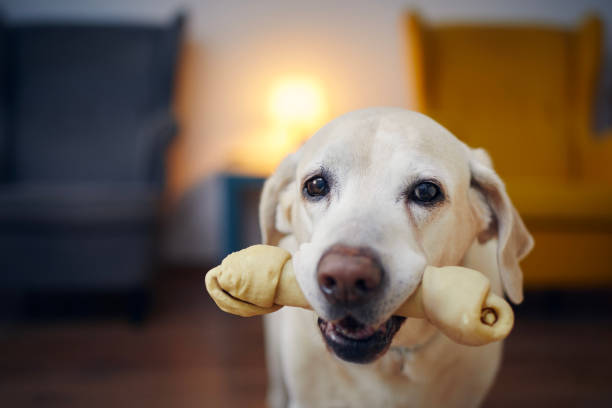
🐾Positive Reinforcement
When your Labrador Retriever plays politely or engages with toys rather than biting, reward him or her with vocal praise and tiny snacks. By doing so, you reinforce the desirable behavior and motivate the children to play without biting.
When instructing biting inhibition, consistency and patience are essential. Be consistent in your training methods and give your Labrador Retriever many opportunities for supervised playtime because it could take some time for them to fully master appropriate play behavior. You may find it helpful to get advice from a qualified dog trainer while you go through this training process.
🦴Protective Instincts
Like many other dog breeds, Labradors have strong protective and devoted impulses toward their families. Labradors may bite to defend themselves when they perceive a potential threat or think their family is in danger. Although this behavior results from a well-intentioned inclination, it is essential to provide them the right training and direction to make sure they can tell the difference between real threats and everyday situations.
To assist Labradors comprehend acceptable behaviors and restrain their protective instincts, early and persistent training is crucial. It is possible to effectively mold their behavior by using positive reinforcement-based training techniques, such as rewarding desired conduct with rewards, compliments, or play. The instructions “sit,” “stay,” and “leave it” can assist Labradors focus their attention and prevent possible problems through training.
In order to train Labradors to distinguish between friend and adversary, socialization is crucial. Exposing kids to a diversity of people in safe and encouraging settings—friends, family, and strangers—can help them develop greater discernment in identifying risks.
While Labradors have protective instincts, it’s crucial to remember that they should never be trained to act aggressively unless absolutely necessary. Encouraging biting or aggressive behavior in the face of innocent circumstances might have unpredictable and sometimes harmful results.
Owners may assist Labradors in developing a balanced awareness of when protection is required and when peaceful engagement is suitable by giving them with early and regular training, socialization, and positive reinforcement. This strategy encourages responsible behavior control and guarantees that Labradors behave as devoted and affectionate companions while upholding a secure atmosphere for everyone.
🦴Fear or Stress

It’s critical to recognize the symptoms of stress or panic in Labradors. These behaviors can include shivering, cowering, snarling, excessive barking, showing a tucked tail or flattened ears, or simply acting nervously. If you see any of these symptoms, it’s crucial to react appropriately by getting rid of the anxiety or stress trigger and reassuring your Labrador.
How to Avoid Tension in Labs
It is essential to stay away from triggers that could cause tension or panic in order to prevent defensive biting events. This can entail exposing your Labrador in a controlled and encouraging way to potentially threatening stimuli over time. For instance, if your Labrador is afraid of thunderstorms or other loud noises, you can make a safe, quiet spot for them there and offer reassuring comfort.
Reduce potential stressors and make sure your Labrador has a safe and comfortable space as part of creating a safe environment for them. This may entail offering them a specific retreat space or box where they can find refuge during worrisome times. Additionally, keeping a regular schedule, offering mental and physical stimulation, and giving instruction based on positive reinforcement will improve their general well-being and lower stress levels.
A professional dog behaviorist or trainer can be helpful if your Labrador frequently displays fear- or stress-related behaviors. They can assist address any underlying issues causing fear or worry in your Labrador and can offer particular solutions catered to their requirements.
You can reduce instances of defensive biting brought on by fear or stress by being aware of Labrador body language, staying away from potential triggers, and creating a safe environment. This will help you and your Labrador companion live in harmony and security.
🦴Health Issues or Discomfort
It is true that discomfort or ill health can cause Labradors to bite. Labradors may become agitated and more likely to bite as a protective reaction when they are uncomfortable or have underlying medical concerns. To reduce biting caused by discomfort, owners must be aware of their Labrador’s health and treat any concerns as soon as they arise.
In order to maintain your Labrador’s health and identify any potential problems early on, routine veterinary examinations are essential. You can make sure that your Labrador receives the proper care and, if required, pain management by obtaining professional veterinary assistance. This can considerably lower the possibility of uncomfortable occurrences leading to biting.
It’s crucial to keep an eye on your Labrador’s behavior and watch for indications of discomfort or pain in addition to receiving routine veterinary care. Changes in appetite, activity levels, or aberrant behavior are just a few examples of these symptoms. It is advisable to speak with your veterinarian if you observe any alarming signs in order to ascertain the underlying reason and the proper course of action.
Effectively managing health problems can help to lower the tendency to bite when in agony. Your Labrador will feel better if you take care of any pain or medical issues right away, which will also lessen the possibility that they will bite in defense.
In order to analyze the issue and create a suitable management plan, it’s important to seek advice from a veterinarian or a qualified dog behaviorist if your Labrador exhibits rapid changes in behavior, such as increasing aggression or biting.
One of the most important aspects of preventing biting episodes brought on by underlying discomfort or medical issues is maintaining your Labrador’s general health and wellbeing.
🦴Lack of Training or Discipline
For Labradors to learn bite inhibition and appropriate conduct, thorough training and discipline are essential, just like for any other breed of dog. A lack of training or inconsistent training methods may be a factor in Labrador biting problems. To properly handle these issues, it’s critical to establish clear limits, educate biting restraint, and offer constant advice.
Positive reinforcement-based training techniques for Labradors are highly advised. This strategy involves rewarding desired behaviors with treats, praise, or play, including sitting or remaining quiet. Labradors are motivated to repeat the desired behaviors by positive reinforcement, which also strengthens the link between them and their owners. To reinforce good habits and reduce tendency to bite, training must be consistent.
Inhibiting the Bite
Training in bite inhibition is crucial if you want your Labrador to learn to control how hard they bite. When they are still puppies and have their razor-sharp puppy teeth, this training is often started. They learn to use their lips gently and comprehend the boundaries of appropriate biting pressure by being taught bite inhibition. This procedure can be aided by gentle redirection, such as providing suitable chew toys when they nip or bite.
Attending obedience lessons or working with experienced trainers can provide you more insight and experience in dealing with biting problems. They may evaluate your Labrador’s unique training requirements and adjust their approach accordingly. Professional trainers can also aid in locating any underlying behavioral difficulties and offering workable solutions.
When training Labradors, consistency, patience, and positive reinforcement are essential. Biting concerns can be greatly reduced and encourage appropriate behavior. You can do that by establishing clear rules and boundaries. Also, rewarding positive behaviors and redirecting or discouraging biting through training may also help.
Keep in mind that training is a lifelong process. And it’s crucial to keep rewarding your Labrador for doing the right thing. You may assist your Labrador develop politeness, avoid biting issues, and create a healthy relationship. You can achieve that by devoting time and effort to training and discipline.
Why do Labrador Retrievers Bite: How to Stop Labs from Biting
The following steps should be taken to prevent and treat biting behavior in Labradors:
- When a puppy is teething, give them appropriate chew toys to divert their attention and ease their discomfort.
- To lessen concerns with fear or hostility, put a focus on early and regular socialization of puppy by exposing them to different people, animals, and places.
- Utilizing techniques based on positive reinforcement and, if necessary, expert advice, teach Labradors to discern between real hazards and everyday situations.
- To reduce defensive biting events, learn to spot the signals of stress or fear, stay away from potential triggers, and establish a safe atmosphere.
- To develop appropriate behavior, ensure adequate training and discipline, educate biting inhibition, and establish clear boundaries.
Frequently Asked Questions
Q: Do Labradors bite easily?
A: This breed is typically regarded as sociable, good-natured, and even-tempered. So, Labrador bites are not thought to be a common occurrence. All of that is generally accurate. Labradors make loyal and amiable friends in addition to being spirited and exuberant.
Q: Can Labrador Retrievers become combative?
A: But are labs capable of violence? Okay, sure. similar to how any dog can when they feel threatened or abused. In essence, it is the owner’s responsibility to properly train their Labrador. Steer clear of situations that can make them feel uncertain or threatened.
Q: Can a dog be taught to never bite?
A: It is actually impossible to totally stop a puppy from biting. To do so, you may teach it to bite softly and to just target chew toys. Declare “Ouch!” or “That hurt!” if your dog bites you painfully so that it is aware of your discomfort. Once you’ve done that, step aside and give your puppy some space.
Q: What age does the Labrador stop biting?
A: Puppies do bite because they are teething, but they also bite in play. And biting tends to start in earnest once the puppy has settled into their new home. So, that would be around 9 weeks old. With some exceptions, puppy biting will stop. Some would be by the time your puppy has his full set of grown up teeth at 7 months.
Q: Why would a Labrador Retriever bite its owner?
A: If a Labrador’s upbringing was toxic, if they weren’t properly taught, or if their living conditions were abusive, neglectful, or detrimental in some other manner, they could bite their owners or anyone else. While any dog has the potential to bite, Labradors tend to be friendly, laid-back, and easygoing.
Final Thoughts
The conduct of Retrievers when they bite is essential for responsible dog ownership and upholding a secure environment. Several factors, such as teething, a lack of socialization, and protective instincts might cause Labradors to bite. Fear or stress, and poor training or discipline may also trigger the biting tendency of the Labs.
Owners can encourage a well-behaved, self-assured, and non-aggressive Labrador Retriever by employing these tactics and getting professional assistance when necessary. Building a deep tie with your Labrador partner through encouraging behavior will satisfy them. They may also become happy when you are aware of their needs. Also, providing a secure and nurturing environment will help to create a happy relationship with them.

